This is a tale of gratitude. I expect most of us know and appreciate how, even in this age of the Internet, libraries, archives, and museums are magic portals to learning and adventure. They hold the books, documents, artifacts, and other materials that help us know who we are. Put another way, they preserve our collective memory and illuminate our cultural heritage. I also expect that most of us have favorites among these magic portals.
Lately I find that my favorite such portals—as well as dozens of others I’ve been privileged to experience—come increasingly to mind, especially the libraries and archives. This is partly because I spend so much time these days reading and writing. It’s also because having worked for most of my life in cultural institutions, I can identify with many of the unique preservation and educational challenges that the librarians, archivists, curators, and managers responsible for them are facing because of the health and economic crises. Looking back, I’m grateful to a huge number of such individuals whom I encountered over the years, and I appreciate each one who is working to shepherd and keep these institutions alive today.
The first library I remember was a bookmobile. A family friend some years my senior told me recently that the little southern town we grew up in had a storefront library for a while, but I don’t remember it. I do, however, fondly recall weekly visits to the bookmobile. It began coming to our community from a nearby town one day each week in the summer about the time I was 10 or so. On bookmobile days, I would get up early in the morning and ride my bike several blocks to a lightly used parking lot to grab a spot near the front of the line of folks young and old gathering to await the big RV-like truck.
Once it pulled in, parked, and opened its doors, I could smell the books. Inside, all sorts of interesting heroes, villains, places, and escapades lurked in the bound pages on its shelves, and I always had trouble narrowing my selections to the maximum of four books we were allowed to check out. Most of the time I chose a mix of baseball novels, Horatio Hornblower stories, and biographies of famous Americans. Recently I drew on those memories to write some of young Billy’s scenes in my novel South of Little Rock.
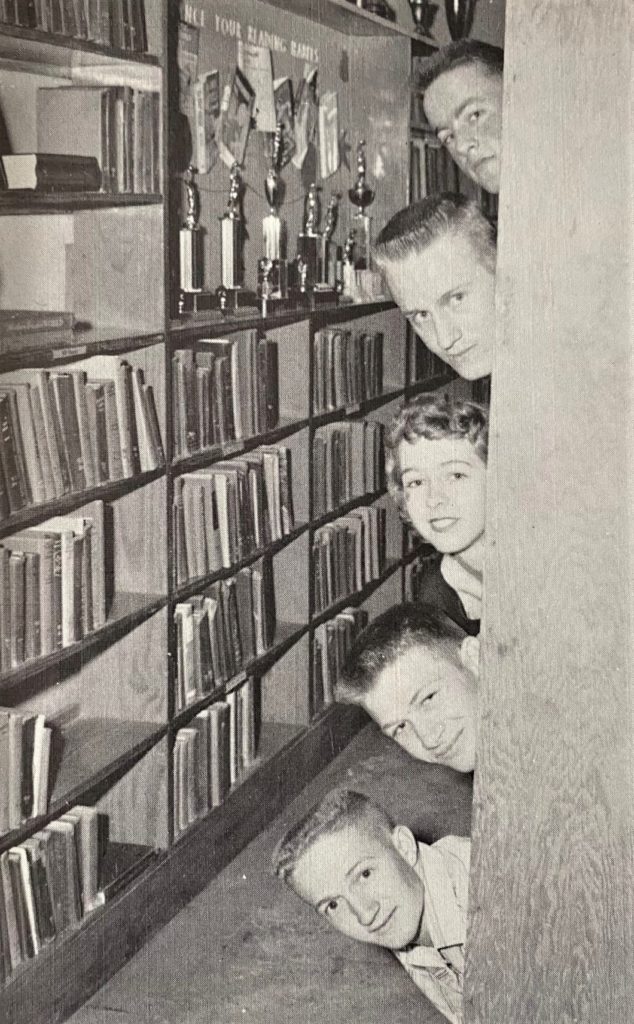 We didn’t have much of an elementary school library, but the district added a fine new library wing to the high school not long before I entered ninth grade. I vividly recall its layout and furnishings. I also remember that I spent more time browsing its shelves for leisure reading than for information to use in class papers. The head librarian was a kind and sweet woman who was always willing to help.
We didn’t have much of an elementary school library, but the district added a fine new library wing to the high school not long before I entered ninth grade. I vividly recall its layout and furnishings. I also remember that I spent more time browsing its shelves for leisure reading than for information to use in class papers. The head librarian was a kind and sweet woman who was always willing to help.
Library memories from my bachelor’s and master’s years at Louisiana Tech University are less fond—despite that it, too, built a new library while I was there. Like most students, I used it chiefly only to complete course work and as a place to study between classes. I did manage, however, to steal a little time to do genealogical research in census records on deposit there.
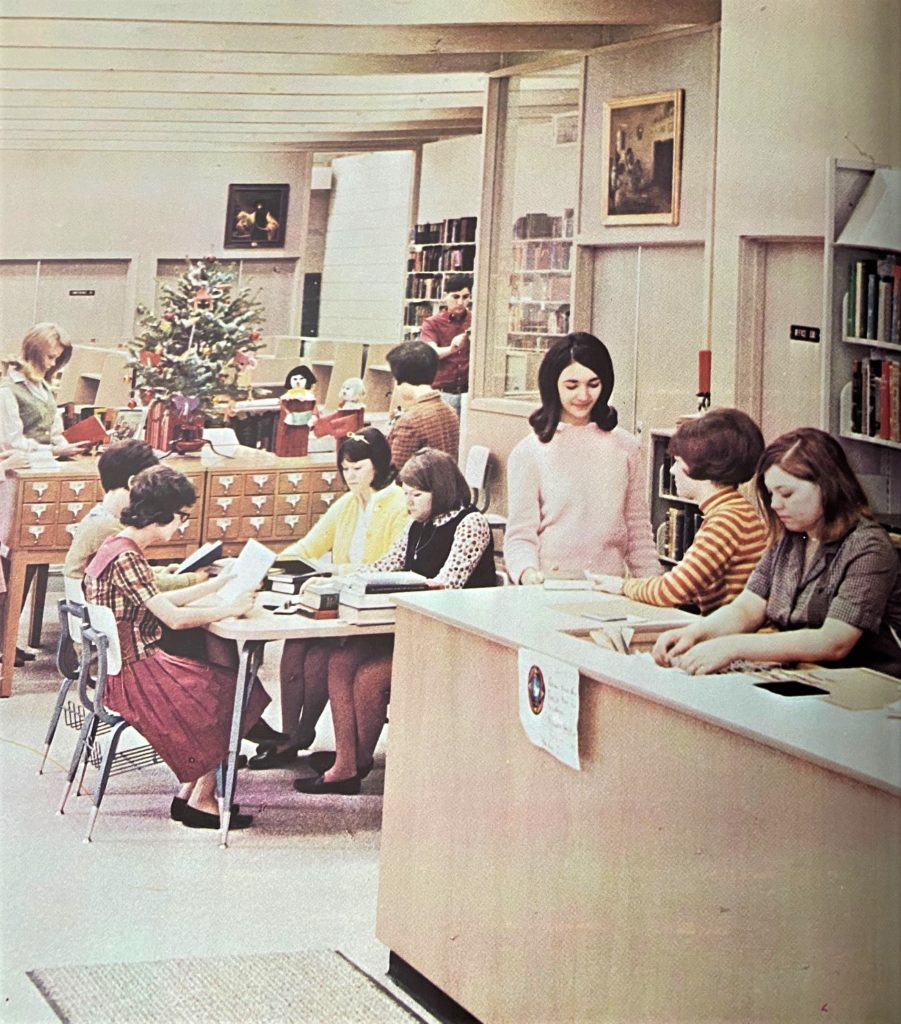 My next library experience was not pleasant at all, sad to say, but it was certainly memorable. As a high school history teacher, I didn’t find our school’s library director particularly helpful. It seemed to me that she was more interested in keeping the library furniture and shelves in the brand new school building neatly arranged than in helping students find and use the sources they needed to complete assignments. Students complained to me and to other teachers about lack of library assistance, and we complained to her, but to little avail.
My next library experience was not pleasant at all, sad to say, but it was certainly memorable. As a high school history teacher, I didn’t find our school’s library director particularly helpful. It seemed to me that she was more interested in keeping the library furniture and shelves in the brand new school building neatly arranged than in helping students find and use the sources they needed to complete assignments. Students complained to me and to other teachers about lack of library assistance, and we complained to her, but to little avail.
Post-masters graduate school proved different. I was fortunate to obtain assistantships and other work in the libraries of the University of Georgia and the University of Arizona. I transferred from the Georgia to Arizona in mid-doctoral studies so I could continue to work with my dissertation director, who went West for a better position in his particular field of U.S. history. I remain grateful for the opportunities those libraries gave me, the ways in which I benefitted from them, and some of the unique experiences I had there.
During my first three weeks at UGA, prior to classes starting, I was what I liked to think of as “a shovel-and-wheelbarrow specialist.” My boss preferred the title “ignorant-spoon flunky” because he disliked student laborers and thought them all lazy. My job involved helping clear construction debris away from a new science library building. That was neither instructive nor fun, but it put a few tuna-fish-and-potato-chip casseroles on our graduate-student table. Once classes began, I started a library assistantship that included stocking shelves, doing book inventory, checking briefcases and parcels of students and faculty as they left the central library, and being in charge of the circulation desk and closing process for the main building on Sunday evenings. A stunt I pulled one night in the performance of my closing duties could have gotten me in big trouble had I been caught.
For obvious reasons, I refrained for years from talking about the matter, but I may as well come clean now. Late on the night that Neil Armstrong walked on the moon, the library was all but deserted. As a doctoral student in American history, I could not resist allowing another student employee to go home and bring back a small portable TV with rabbit ears so we could see the history-making event. We ushered out the few remaining patrons nearly half an hour before closing time, locked the front door, went into the Head Circulation Librarian’s office, plugged in the set, and watched the riveting coverage until well after we were supposed to have left the building.
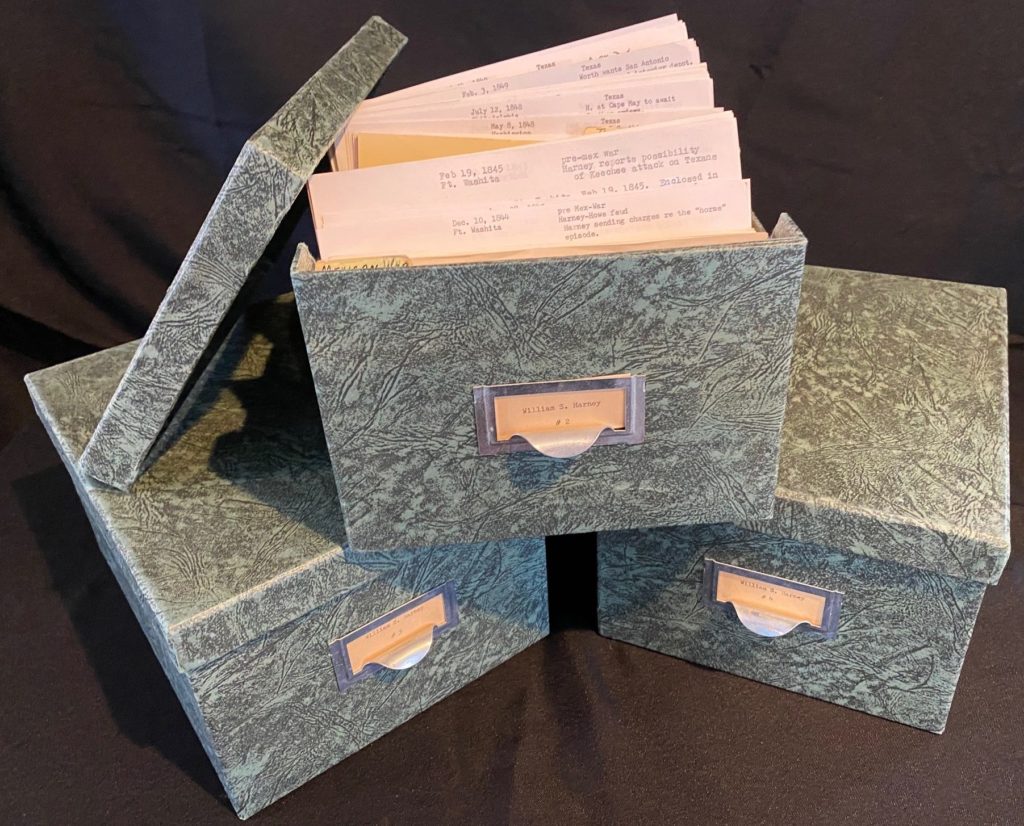 At Arizona, I worked as a graduate reference librarian, first in the general reference room and later in the social science reference room. In addition to those jobs being terrific learning opportunities, they helped me land a coveted locked carrel on the restricted-access top floor that housed rare books and the bound U.S. Government Serials set, which I had to use extensively in my dissertation research. I recall almost as fondly the day some years later that I returned to the campus to defend my finally completed dissertation and went to visit the former library building for old-time’s sake. The stately red-brick structure was largely vacant by then and awaiting adaptive reuse, its holdings having been moved into a new facility. It occurred to me at the time that new library facilities seemed to follow me almost everywhere I went. The old building was open despite being sparsely occupied, and the moment I walked in the front door, the distinct old-book smell still permeating the building made me feel like I had come home.
At Arizona, I worked as a graduate reference librarian, first in the general reference room and later in the social science reference room. In addition to those jobs being terrific learning opportunities, they helped me land a coveted locked carrel on the restricted-access top floor that housed rare books and the bound U.S. Government Serials set, which I had to use extensively in my dissertation research. I recall almost as fondly the day some years later that I returned to the campus to defend my finally completed dissertation and went to visit the former library building for old-time’s sake. The stately red-brick structure was largely vacant by then and awaiting adaptive reuse, its holdings having been moved into a new facility. It occurred to me at the time that new library facilities seemed to follow me almost everywhere I went. The old building was open despite being sparsely occupied, and the moment I walked in the front door, the distinct old-book smell still permeating the building made me feel like I had come home.
During my last year or so at Arizona, I was fortunate to get a dissertation-year research fellowship that enabled me to travel for several months to do research at the Missouri Historical Society, Nashville Public Library, Illinois State Library, Library of Congress, and National Archives. Needless to say, I loved every minute of it. At every stop librarians and archivists proved fountains of knowledge and helped me make the most of the time I had to delve into relevant holdings. At the time I thought I’d get back to some of those places for a another, similar project someday, but life took me in a different direction.
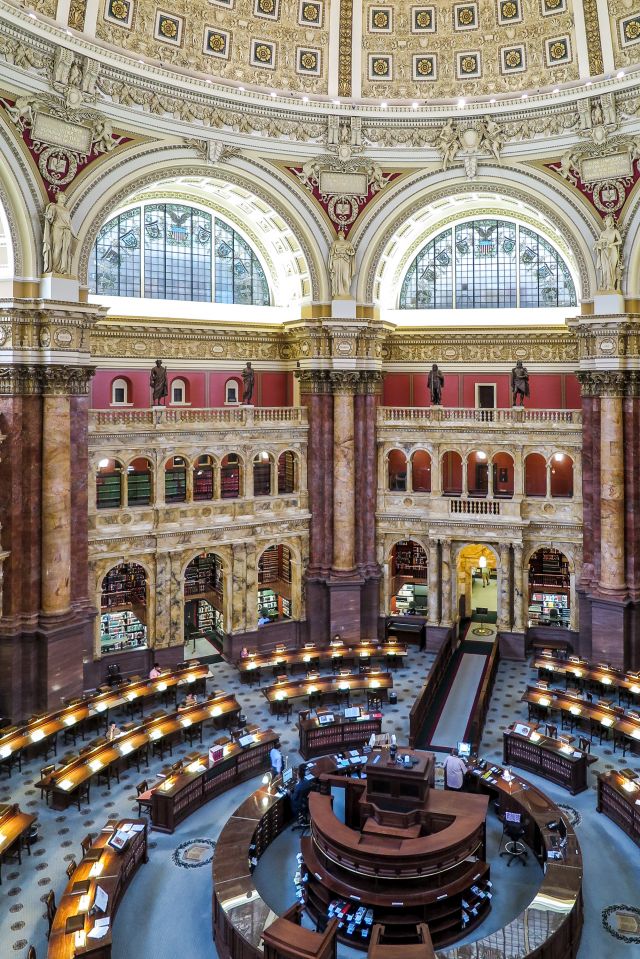 After my time at UA, I was fortunate to land a job at the American Association for State and Local History managing a National Historical Landmark research program under contract with the National Park Service. For five years that position took me to town, city, county, and state libraries, as well as to state and local historical societies, in more than 40 states. It was long work with tight deadlines, but on many days it seemed almost like I was getting free vacation travel and a free post-graduate education all rolled up together. I can still close my eyes and recall some of the specific reading rooms, archives boxes, and book carts, along with particular books, documents, and helpful librarians and archivists I encountered.
After my time at UA, I was fortunate to land a job at the American Association for State and Local History managing a National Historical Landmark research program under contract with the National Park Service. For five years that position took me to town, city, county, and state libraries, as well as to state and local historical societies, in more than 40 states. It was long work with tight deadlines, but on many days it seemed almost like I was getting free vacation travel and a free post-graduate education all rolled up together. I can still close my eyes and recall some of the specific reading rooms, archives boxes, and book carts, along with particular books, documents, and helpful librarians and archivists I encountered.
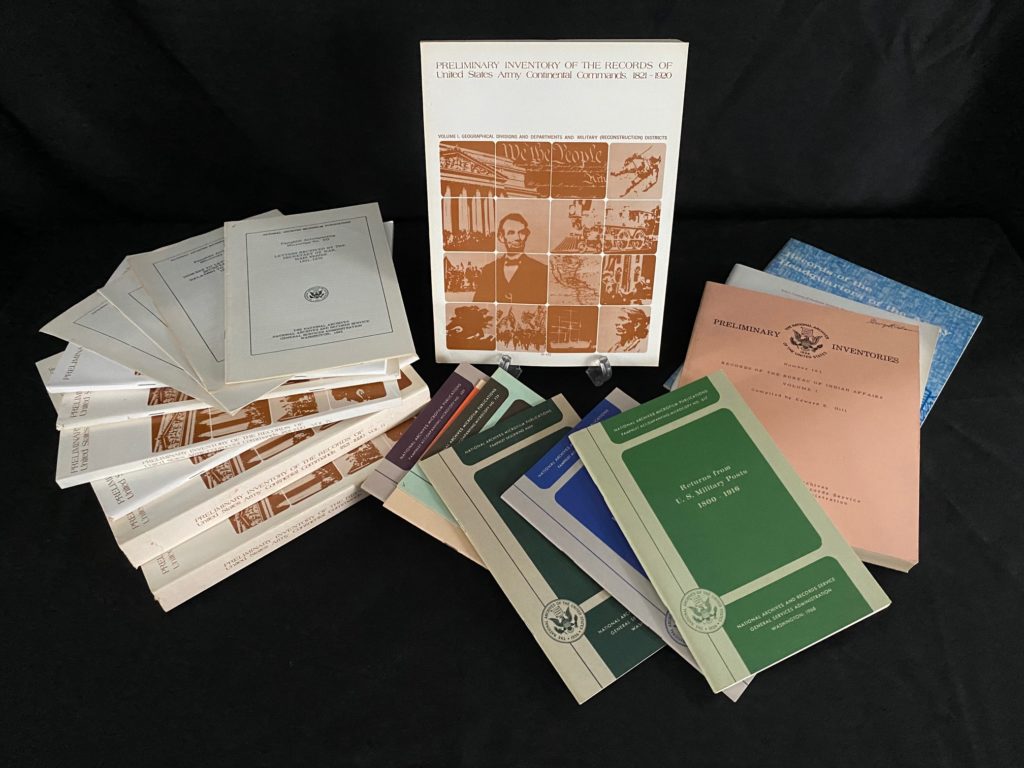 Later, when I was blessed to become a museum director, all three of the institutions that employed me over the years had significant library and archival collections and talented professional staffs. At the last of those—the Strong National Museum of Play—I was privileged to have a once-in-a-lifetime opportunity to help create an internationally significant collection of materials related to the history of play, especially video games.
Later, when I was blessed to become a museum director, all three of the institutions that employed me over the years had significant library and archival collections and talented professional staffs. At the last of those—the Strong National Museum of Play—I was privileged to have a once-in-a-lifetime opportunity to help create an internationally significant collection of materials related to the history of play, especially video games.
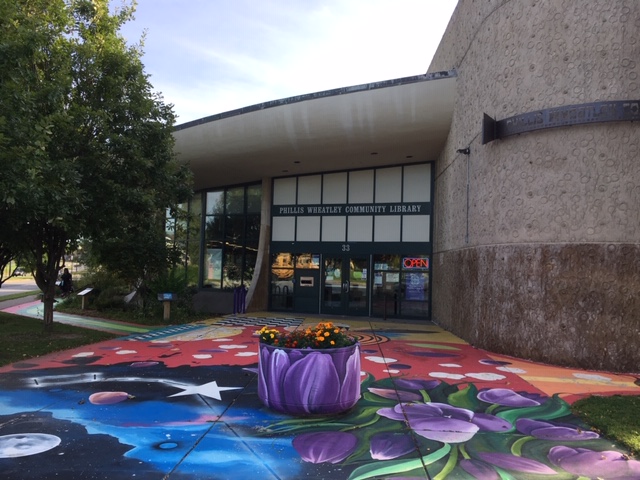 In recent months, before the pandemic, I had the terrific opportunity to do readings and signings for South of Little Rock in a number of wonderful community libraries in the Finger Lakes Region, and I’m thankful to the librarians who invited and welcomed me. Some of these libraries have relatively new facilities. I’m not taking credit for them, mind you, but still, just saying. Seems kinda like the continuation of a pattern.
In recent months, before the pandemic, I had the terrific opportunity to do readings and signings for South of Little Rock in a number of wonderful community libraries in the Finger Lakes Region, and I’m thankful to the librarians who invited and welcomed me. Some of these libraries have relatively new facilities. I’m not taking credit for them, mind you, but still, just saying. Seems kinda like the continuation of a pattern.
To anyone who started reading this and has made it to the end, I imagine it seems like a way-too-long and way-overblown personal stroll down a memory lane that no one else cares about. And perhaps it is. I began it and then got carried away with it, though, because as a reader and a writer I’m enormously grateful to librarians and archivists for all that they do for their communities and for society as a whole as they carry out their missions both in, and online from, the magic portals where they serve. If you’re still with me, I bet you share that sentiment.
What are your favorite library memories?
Library of Congress photo by Chance Agrella, freerangestock.com
To be notified of new posts, please email me.